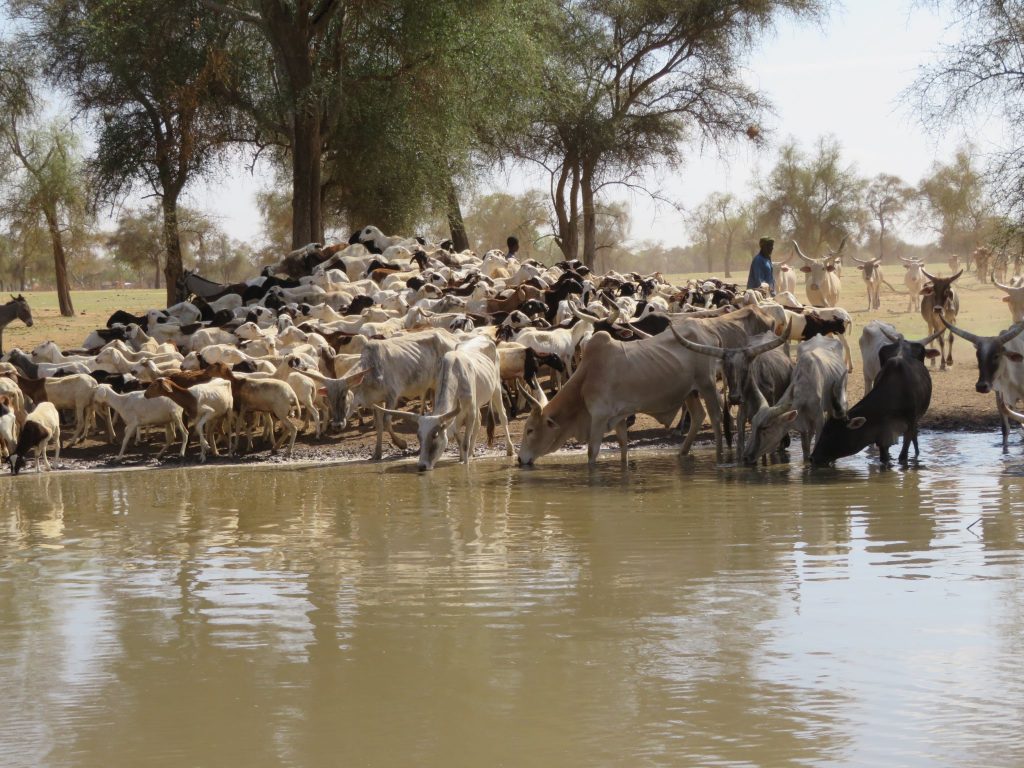Multi-year, multi-partner project (CaSSECS) gets underway to quantify carbon sequestration and greenhouse gas emissions in (agro) sylvopastoral ecosystems in the Sahelian West Africa

Over the next five years, concrete steps will be taken to strengthen the local capacity of West African countries to quantify greenhouse gas and ecosystem impacts of Sahelian agro-silvopastoral systems and to provide advice on livestock policies aimed at optimizing management practices adapted to the region.
The CaSSECS project will be implemented in Senegal, Burkina-Faso, Niger, Mali, Chad and Mauritania, led by the Senegalese Institute of Agricultural Research (ISRA) and supported by several other local and international partners. Research partners include: Agrhymet-CILSS, APESS, The Catholic University of Louvain, CIRAD, CIRDES, CNRS, CSE, The Department of Livestock of the Senegalese Ministry of Livestock, FAO, INERA, INRAE, IRD, Lund University, RECOPA, Toulouse III University, Cheikh Anta Diop University, and The University of Copenhagen.
What is the current political, policy and scientific context?
In Sahelian countries, (agro) pastoral livestock farming systems are not considered a high priority by politicians. A solid scientific evidence basis is necessary to demonstrate the potential for increased production efficiency and consequent lower emissions per unit of product, to establish a political framework for implementing successful mitigation strategies in these systems.
One of the major challenges of the CaSSECS project is to shift decision makers’ perceptions of the impact of (agro) pastoral livestock farming systems on the environment. CaSSECS aims to do this by working to recognize (agro) pastoral livestock farming systems as a mode of production and lifestyle and for their environmental, economic and social contributions.
A lack of understanding on the potential environmental gains to be made from effective policy strategies in these systems is explained in part by a segmented view of (agro) pastoral livestock systems, and by a lack of scientific and technical skills to analyse their GHG emissions and generate reliable data. In addition, CaSSECS will collect data on the carbon sequestration potential of the ecosystem, which has to be taken into account in order to have a clear picture of (agro) pastoral livestock systems’ full carbon balance and inform decision making.
What will the project do?
The project will undertake assessments of existing livestock management practices, test optimised practices through pilot activities, and provide academic and professional trainings. Tools and models will be developed for data collection and long-term monitoring and attention will be paid to establish effective institutional arrangements and an active dialogue between all relevant stakeholders in the region.
The outcomes of the CaSSECS project will be that farmers will adopt optimal management practices (including nutritional strategies and more efficient resource management) that will ultimately improve productivity.
Note: the research study conducted in Senegal (Assouma et al. 2020) shows that pastoral landscapes can have a neutral carbon balance, and that emissions from animals are offset by carbon sequestration in soils and plants.
How will the outputs of the project feed into the GHG inventories of the participating countries and the links to their national NDC processes?
Activity data will be made available to national inventory compilers for comprehensive trend analyses of the environmental impact of livestock systems, which in turn will contribute to the evidence base that advises policy decisions on implementation of mitigation strategies.
By promoting the collection, measurement and analysis of reliable data on carbon footprint optimization practices in (agro) pastoral livestock systems, the CaSSECS project makes available to national inventory managers (focal points of ministerial offices) the data necessary for a global trend analysis.
The strategy proposed by the CaSSECS project is to:
- develop an improved aggregation model and an adapted information system, and
- train inventory compilers and teams in technical trainings and workshops so that they are competent and autonomous in the use of the relevant inventory tools.
The national bodies of the Sahelian countries of Permanent Inter-State Committee for Drought Control in the Sahel (CILSS) will ultimately better understand the issues around (agro) pastoral livestock systems, will build and update these repositories, and will integrate this new data and renewed perspective into their national policies.
